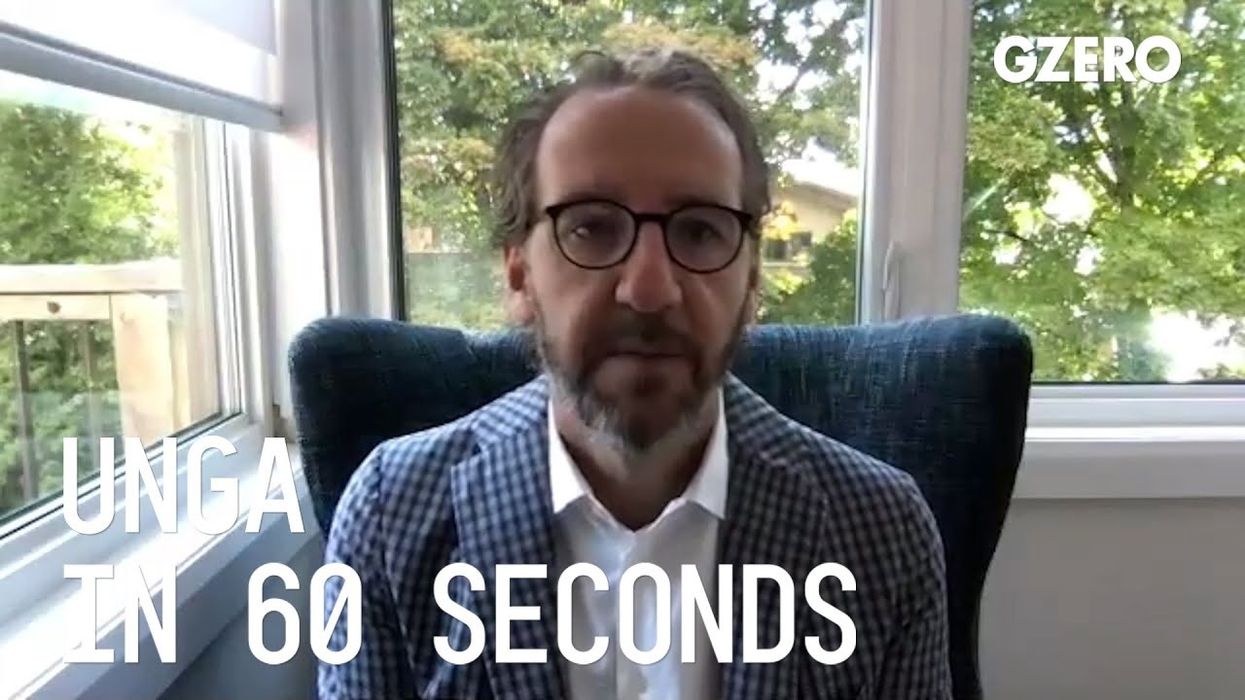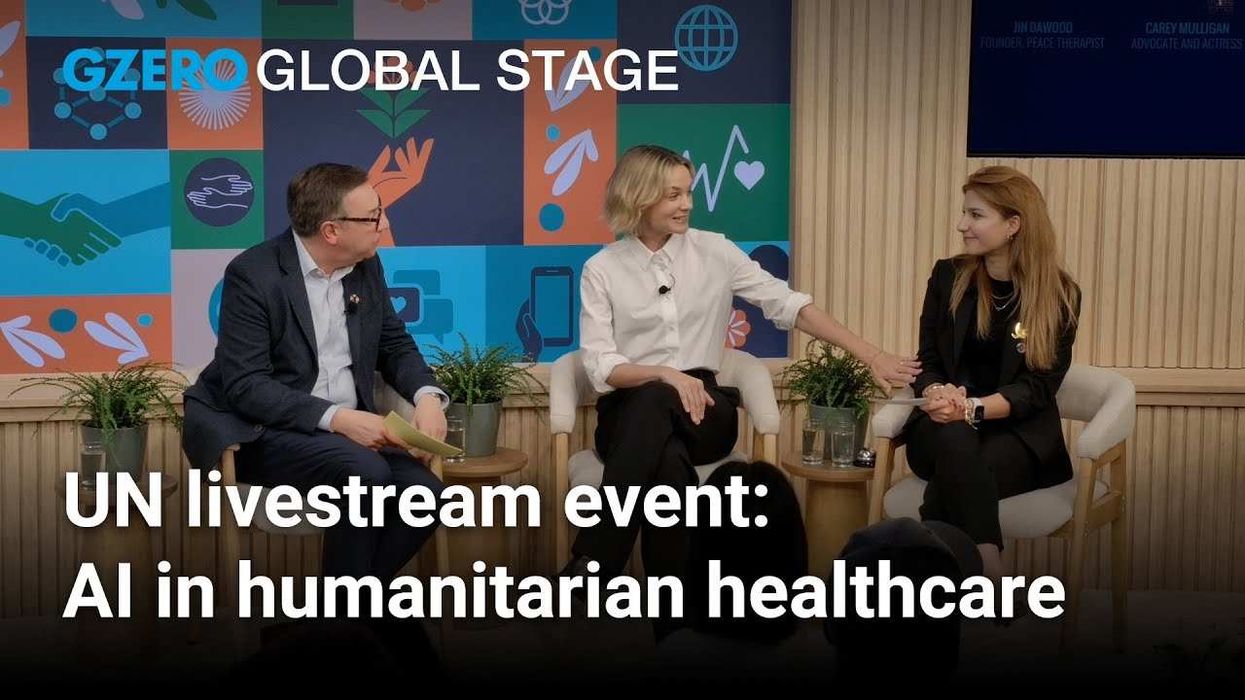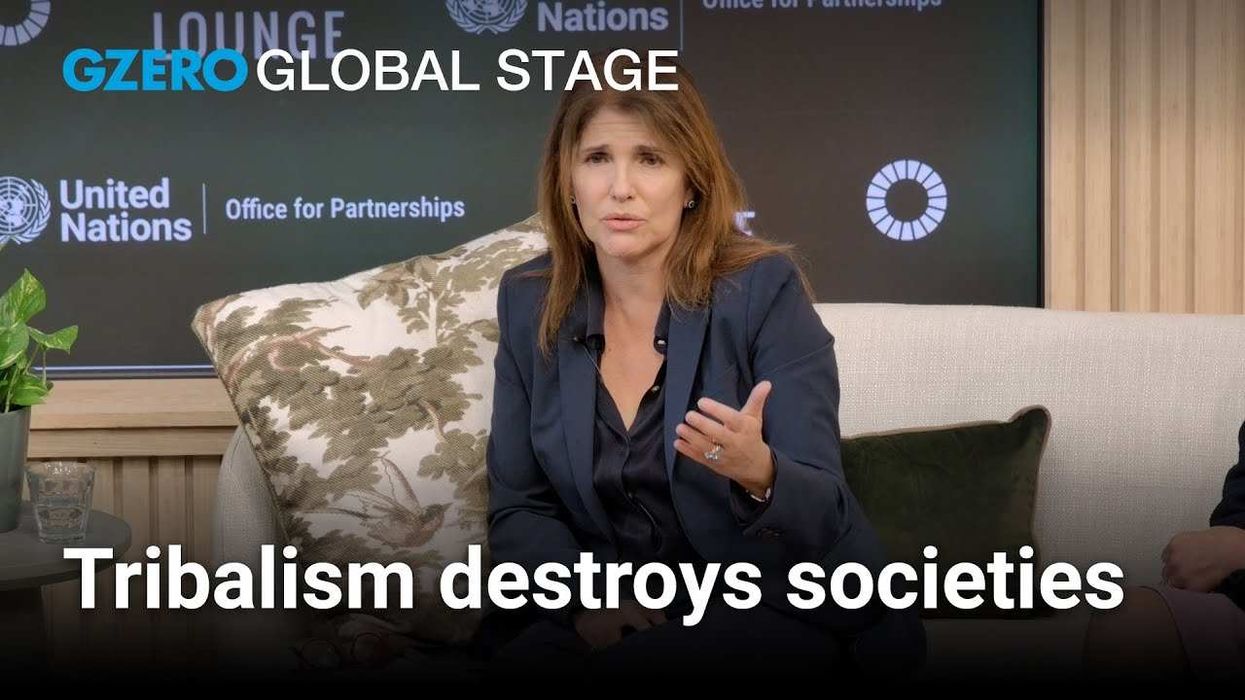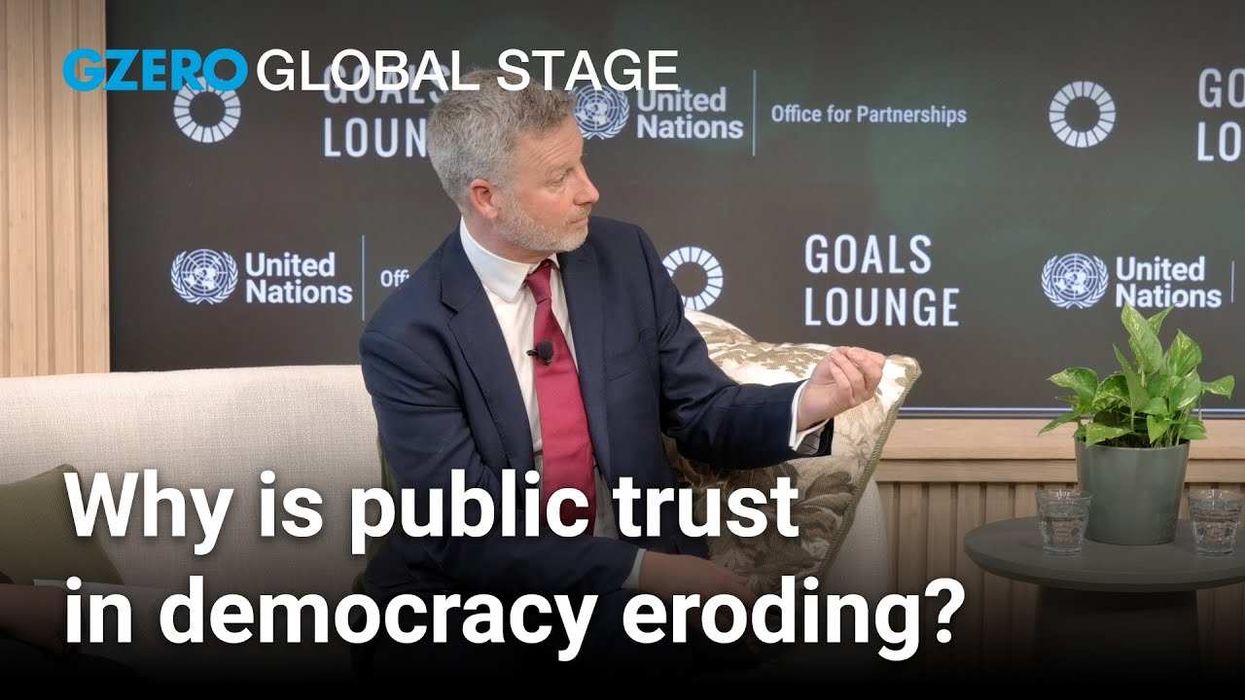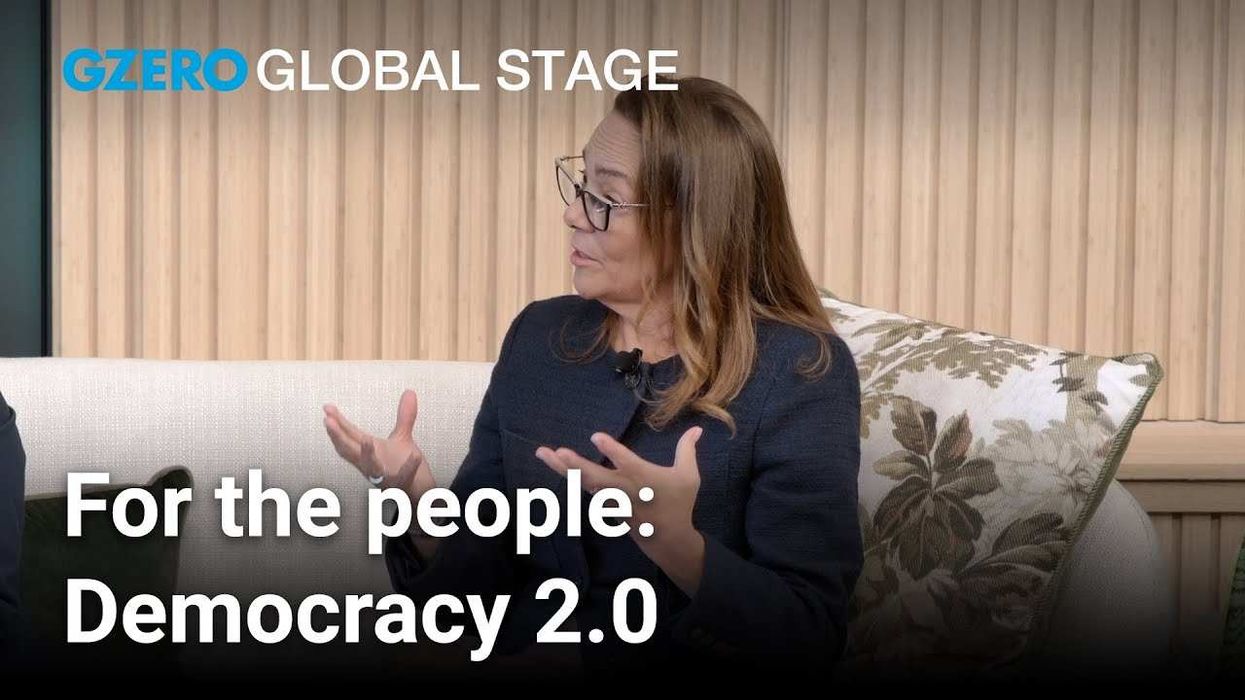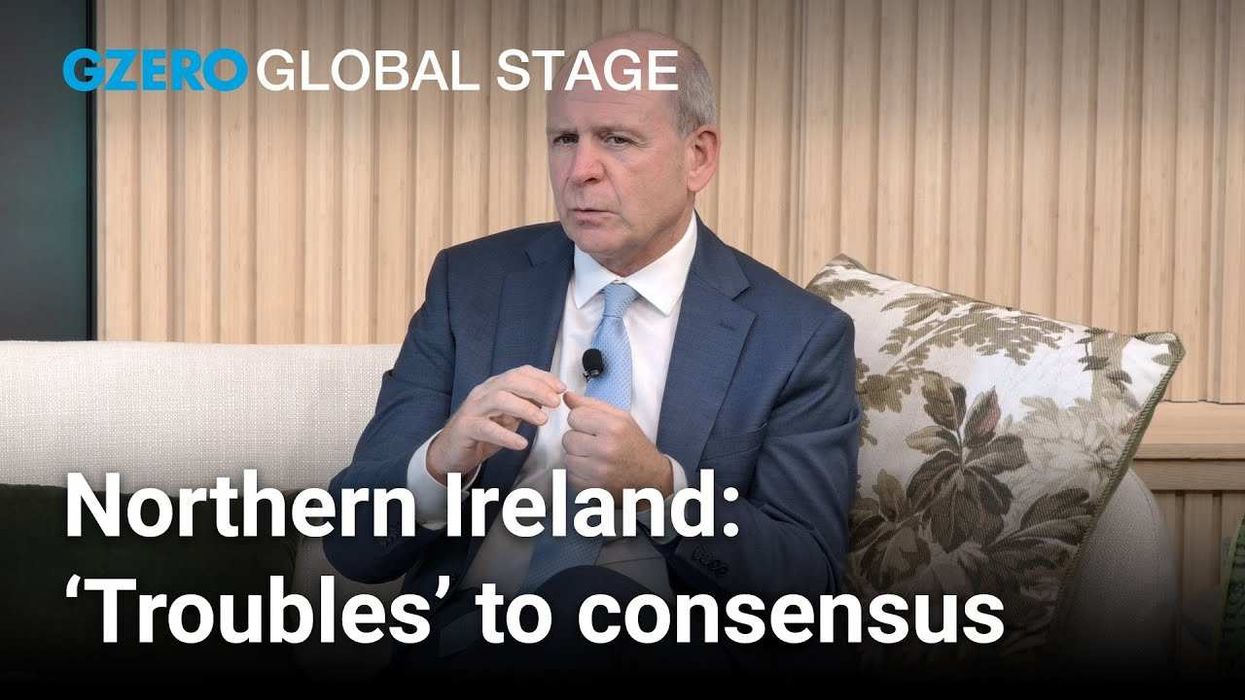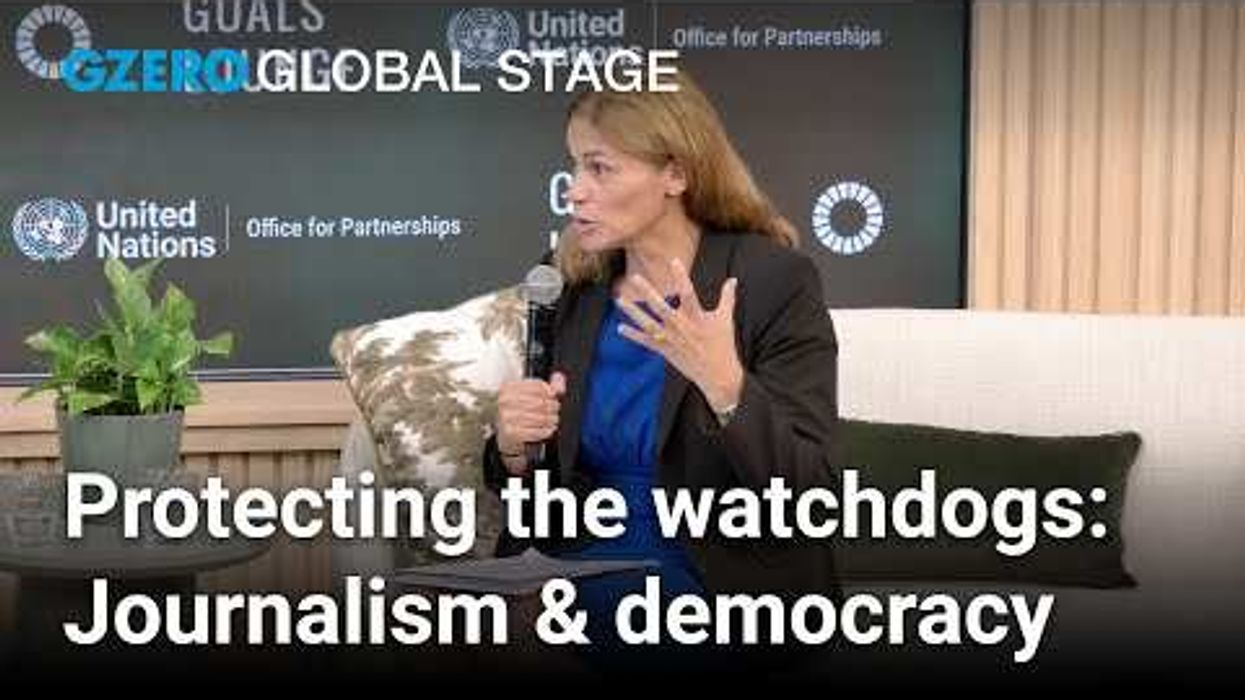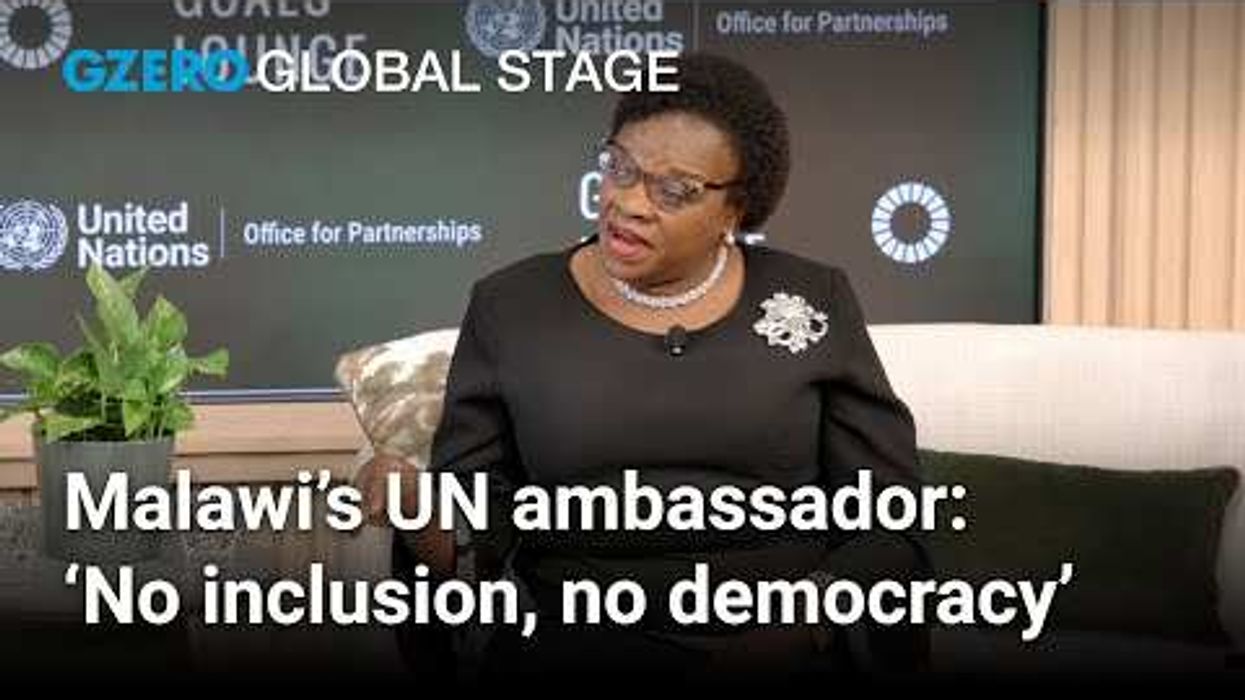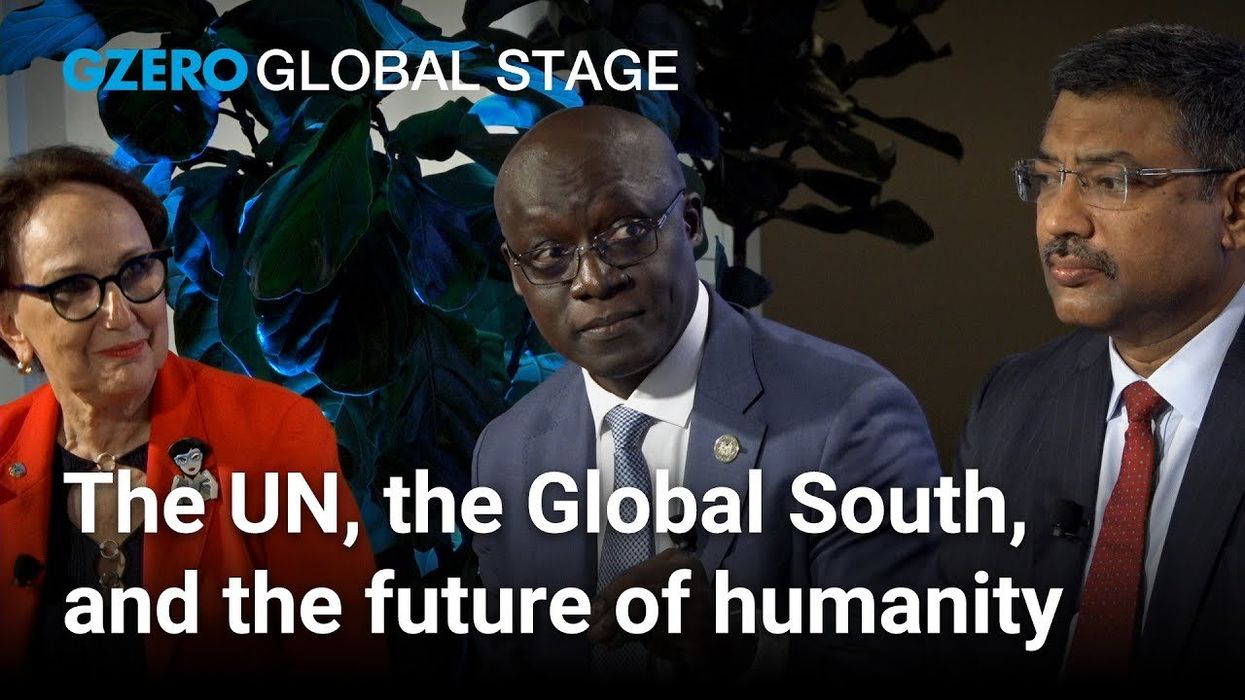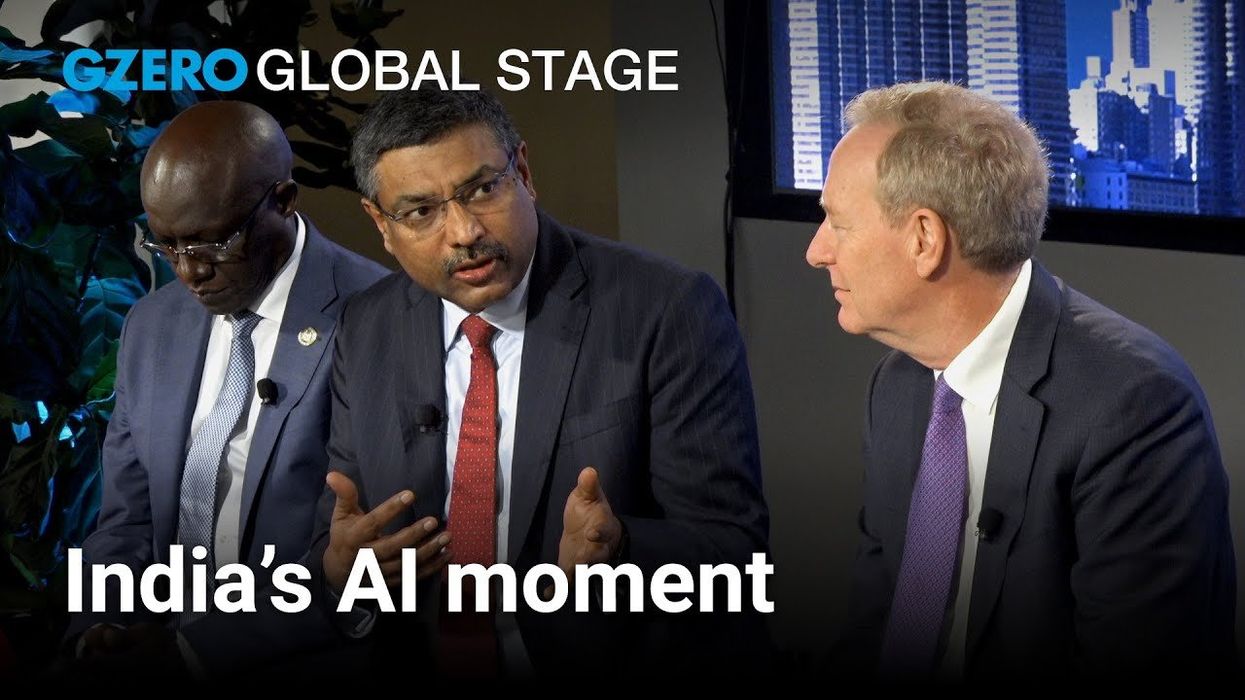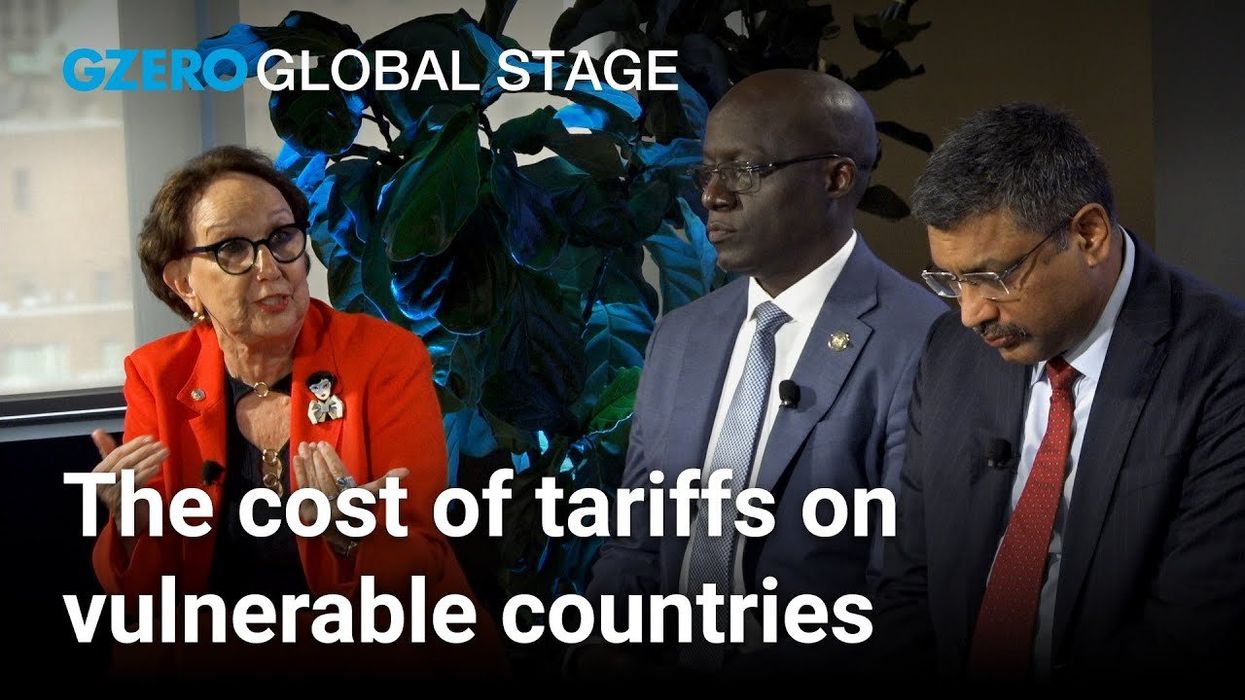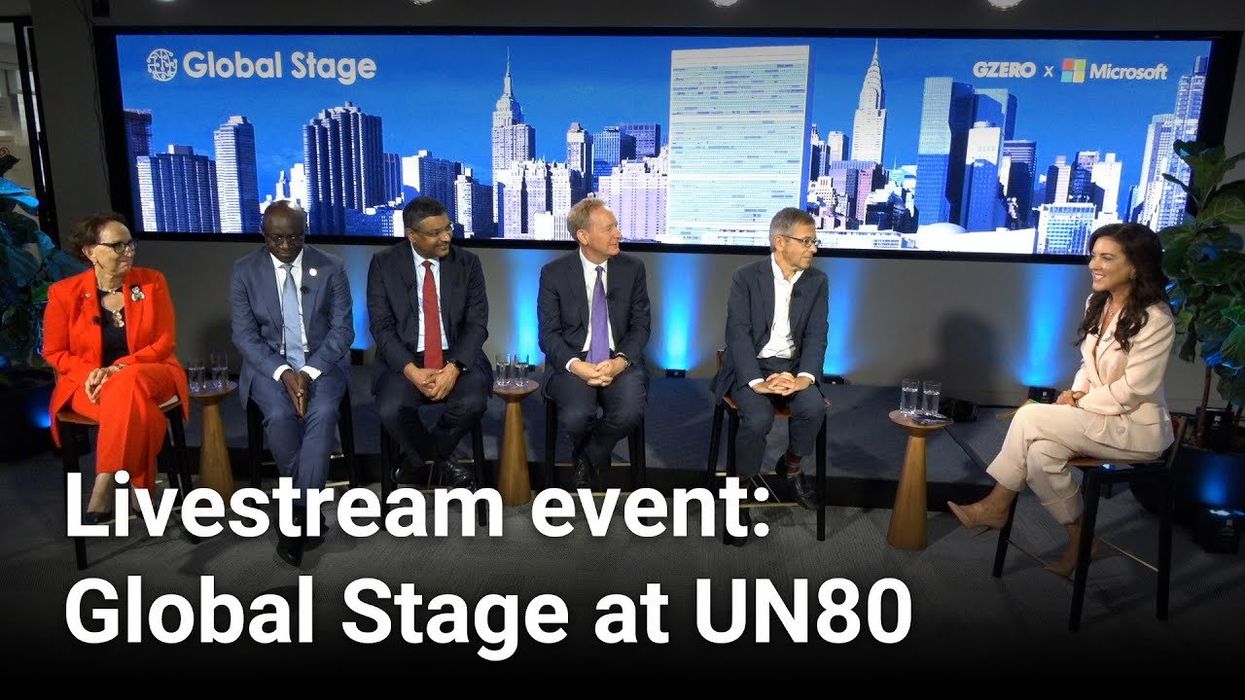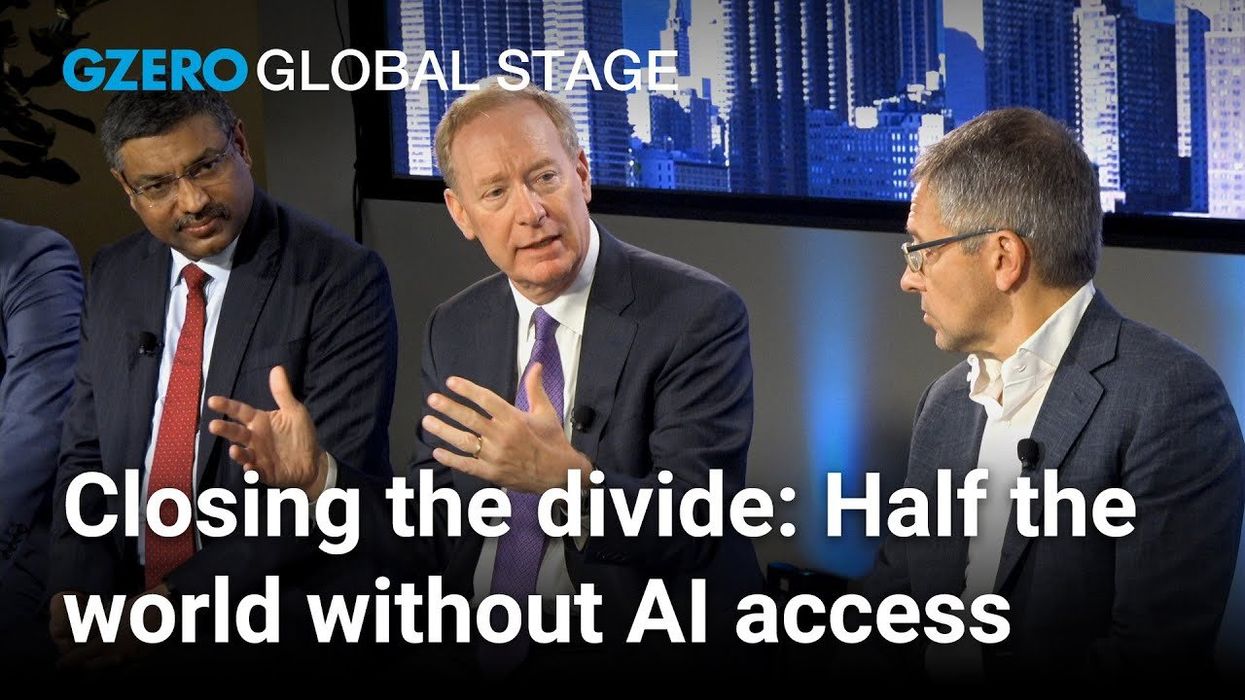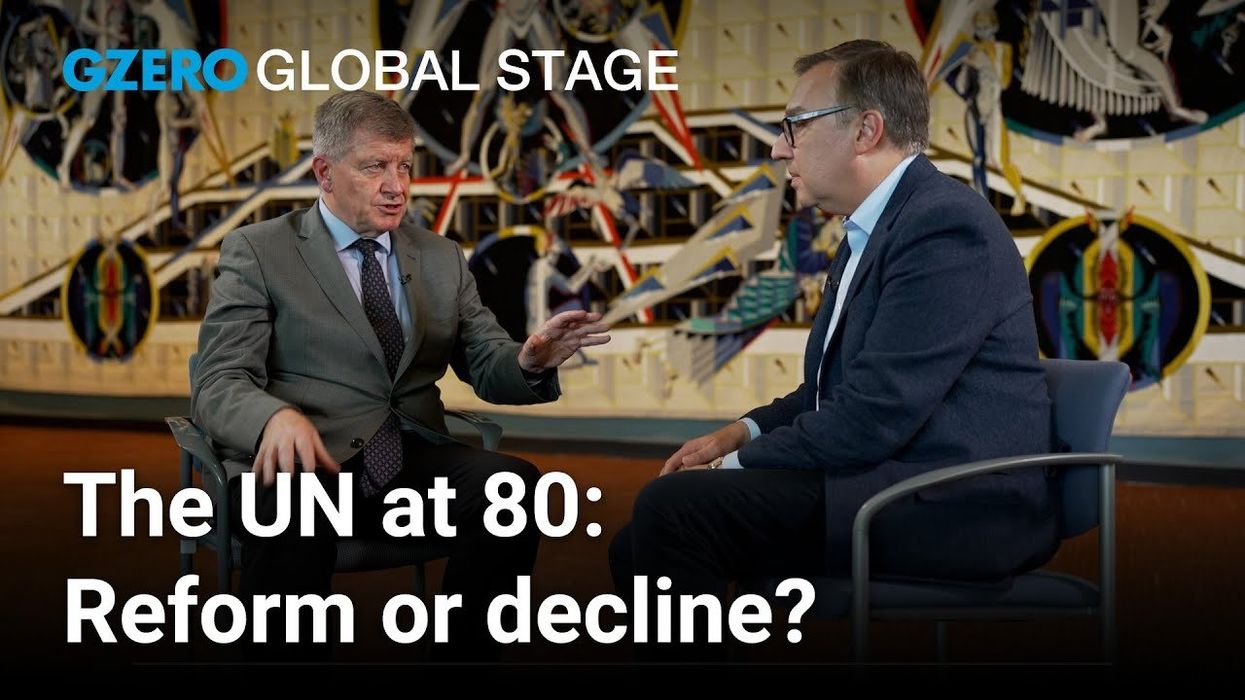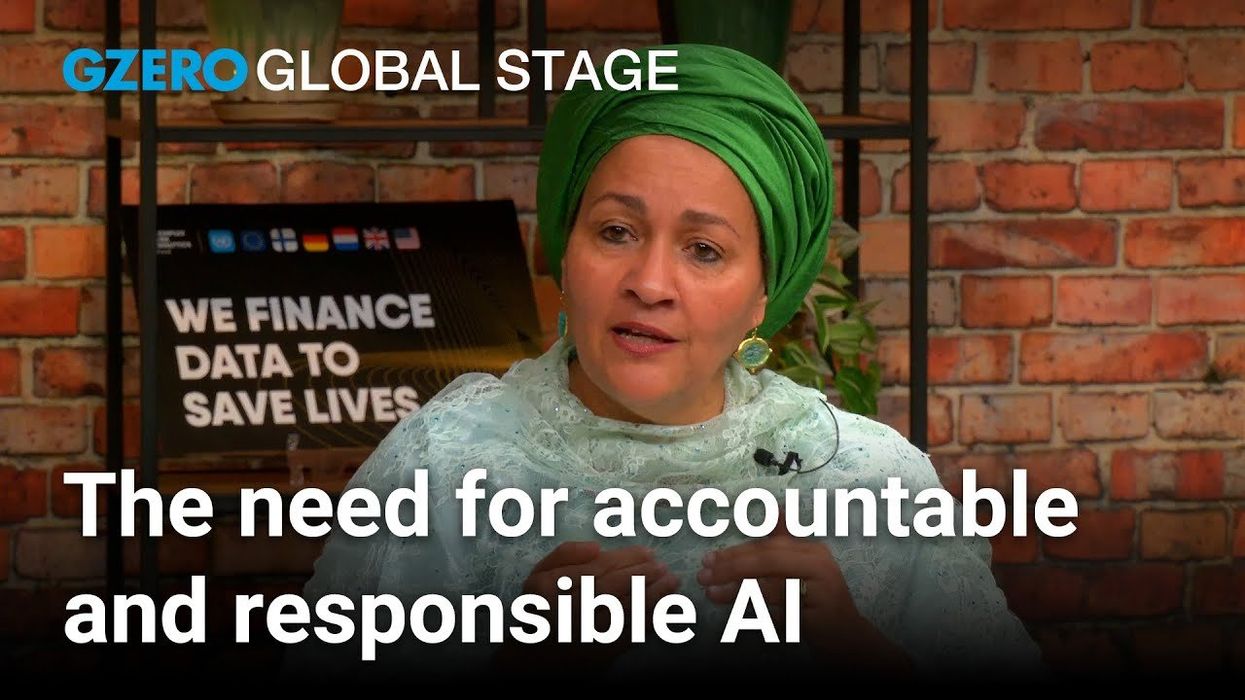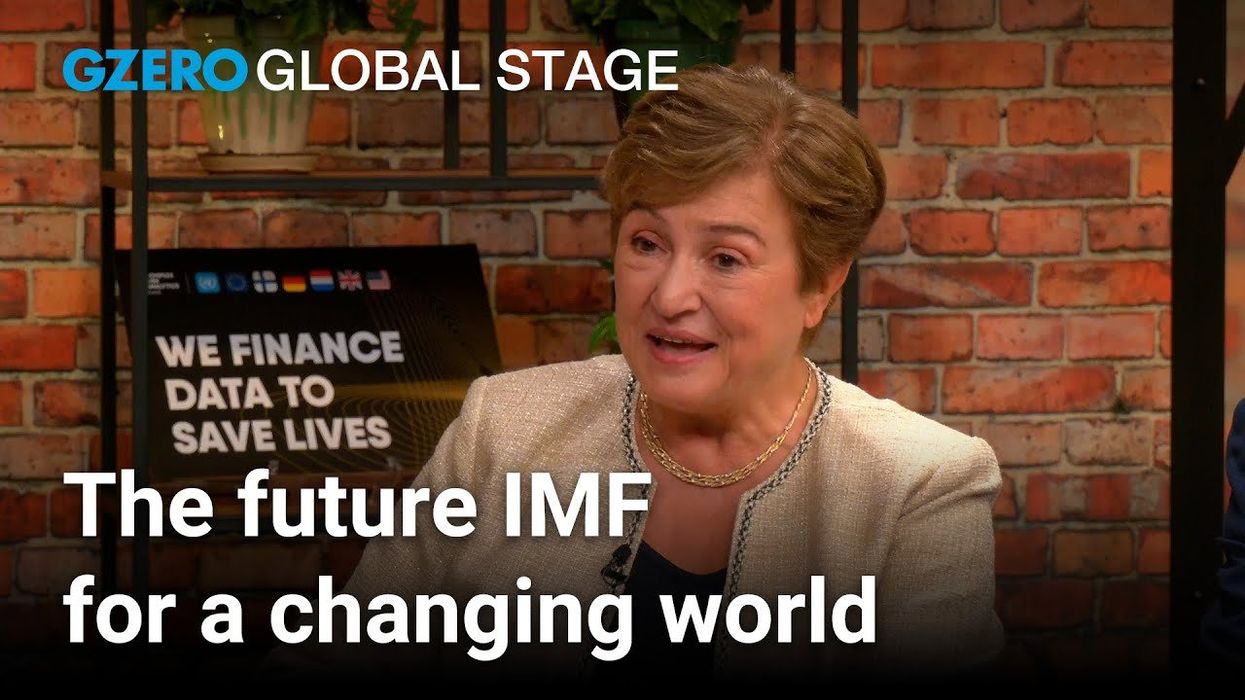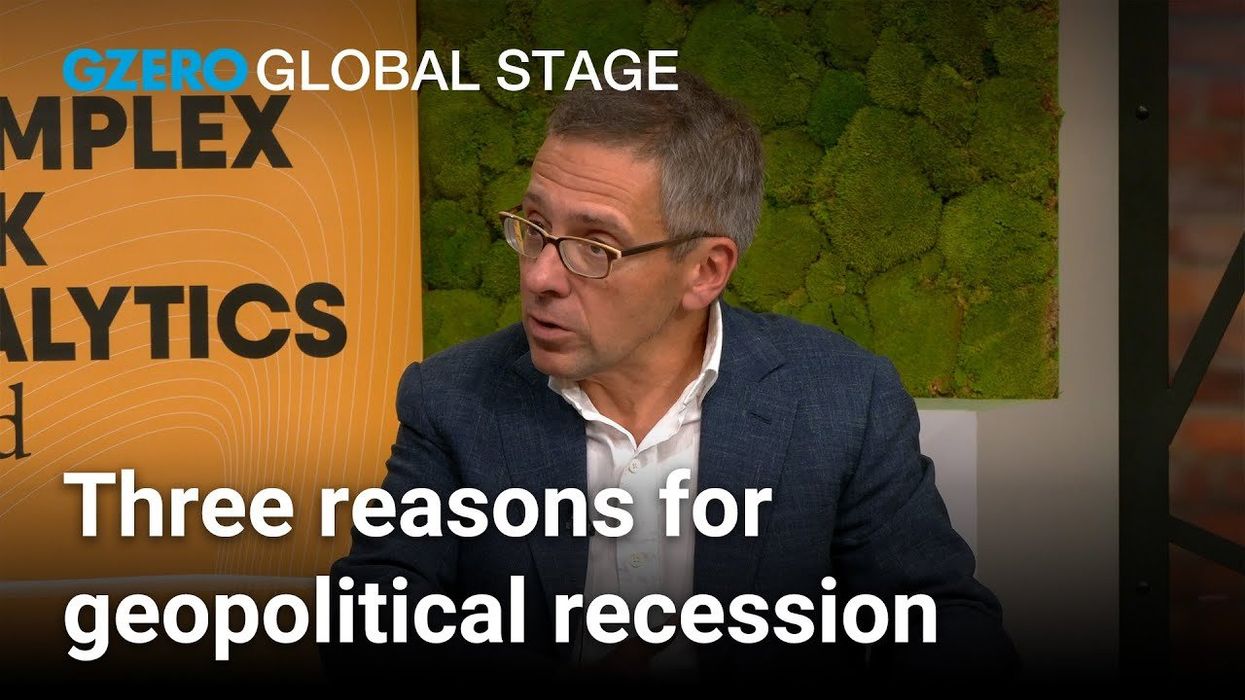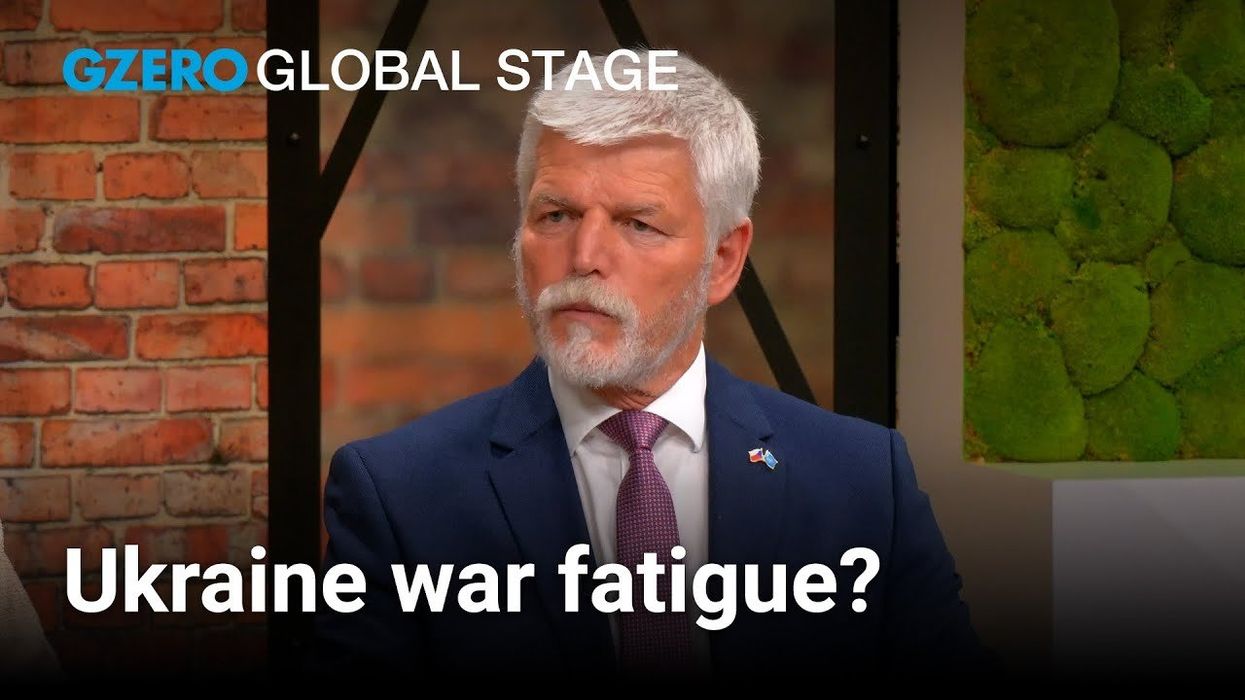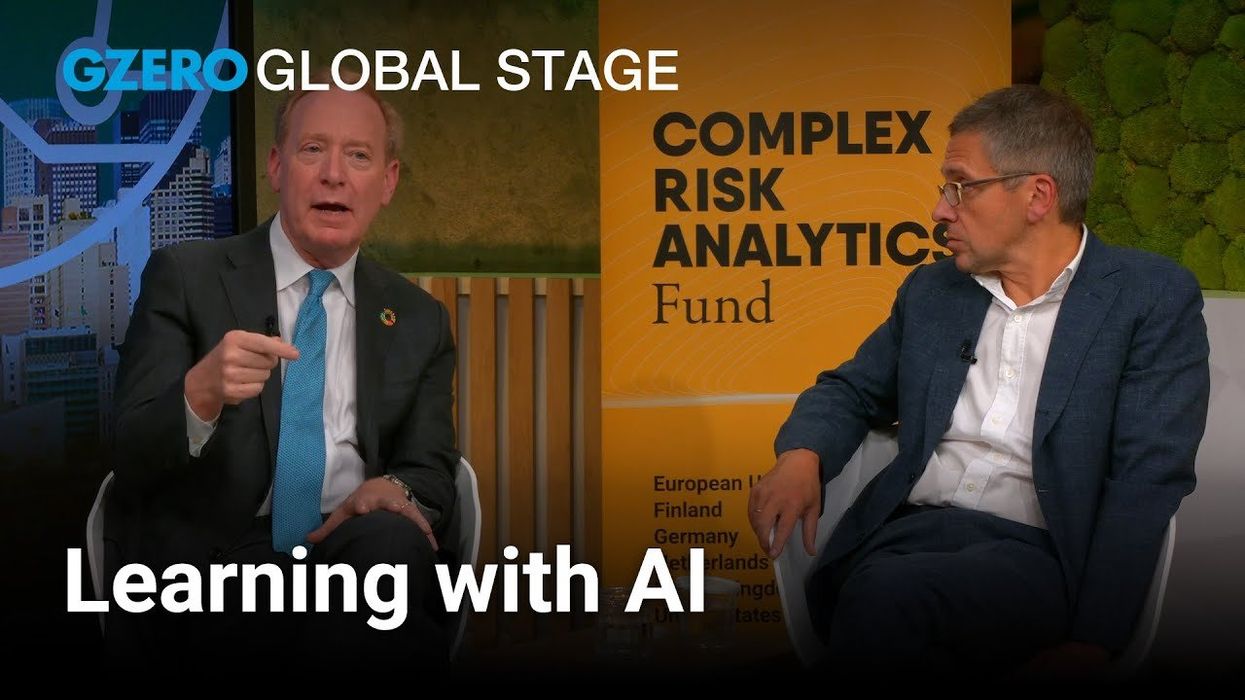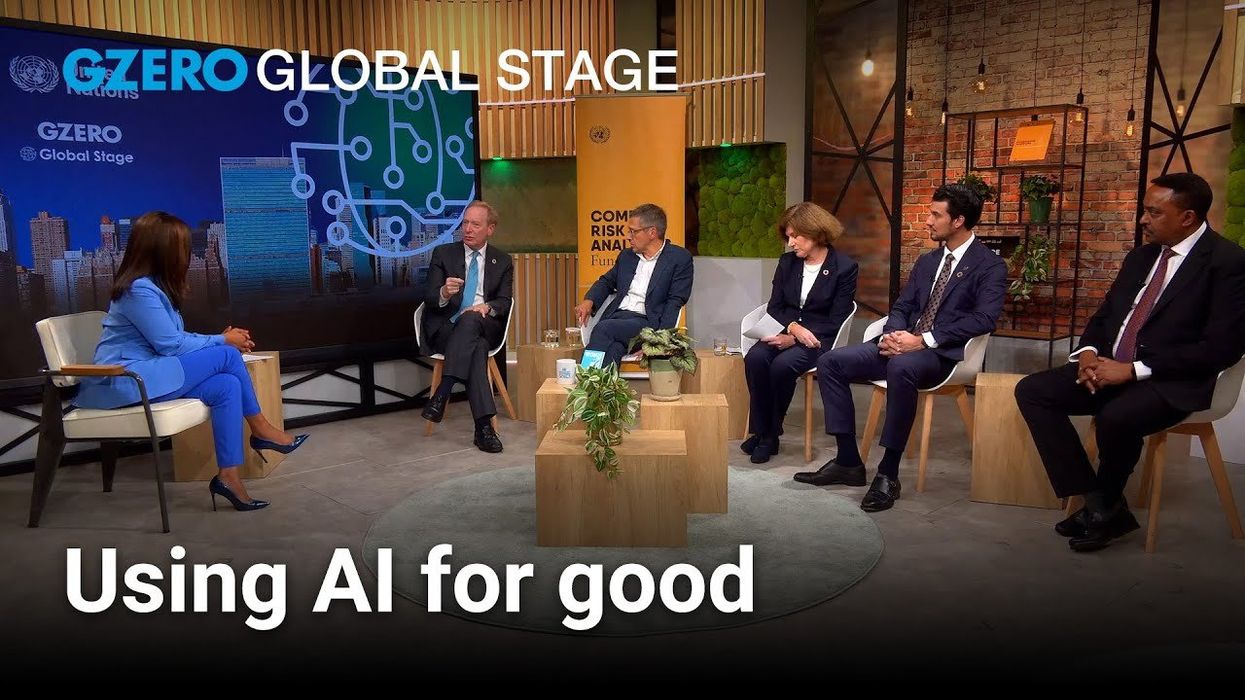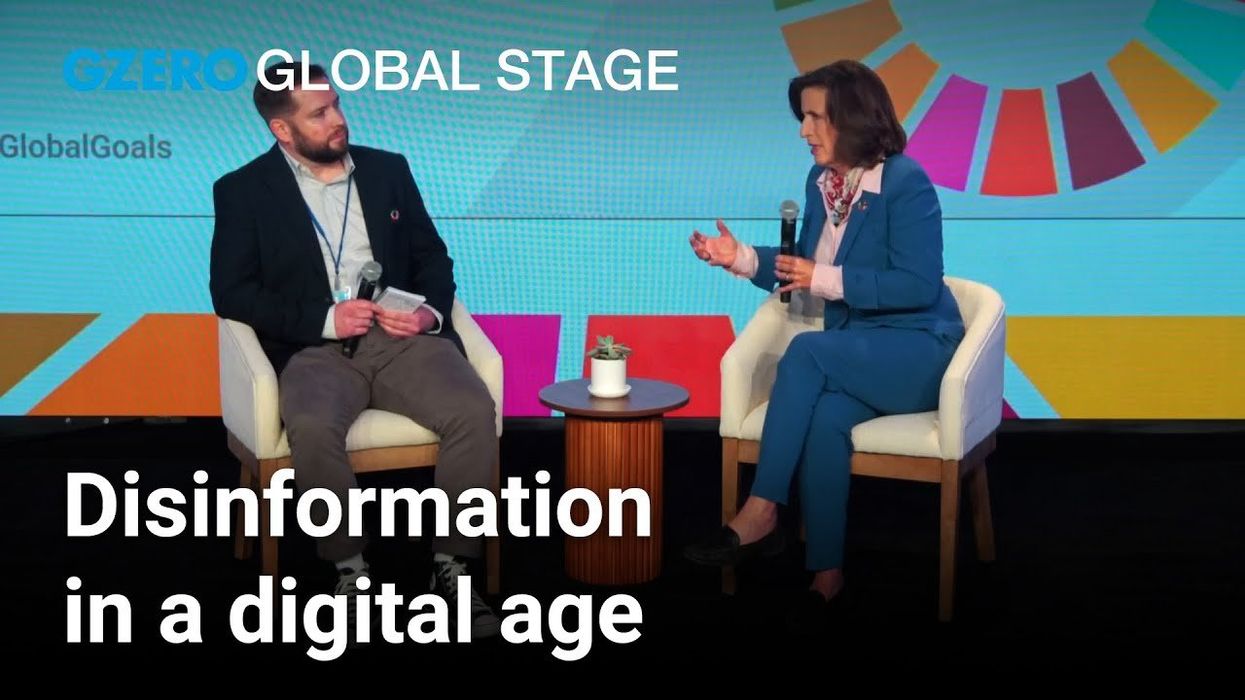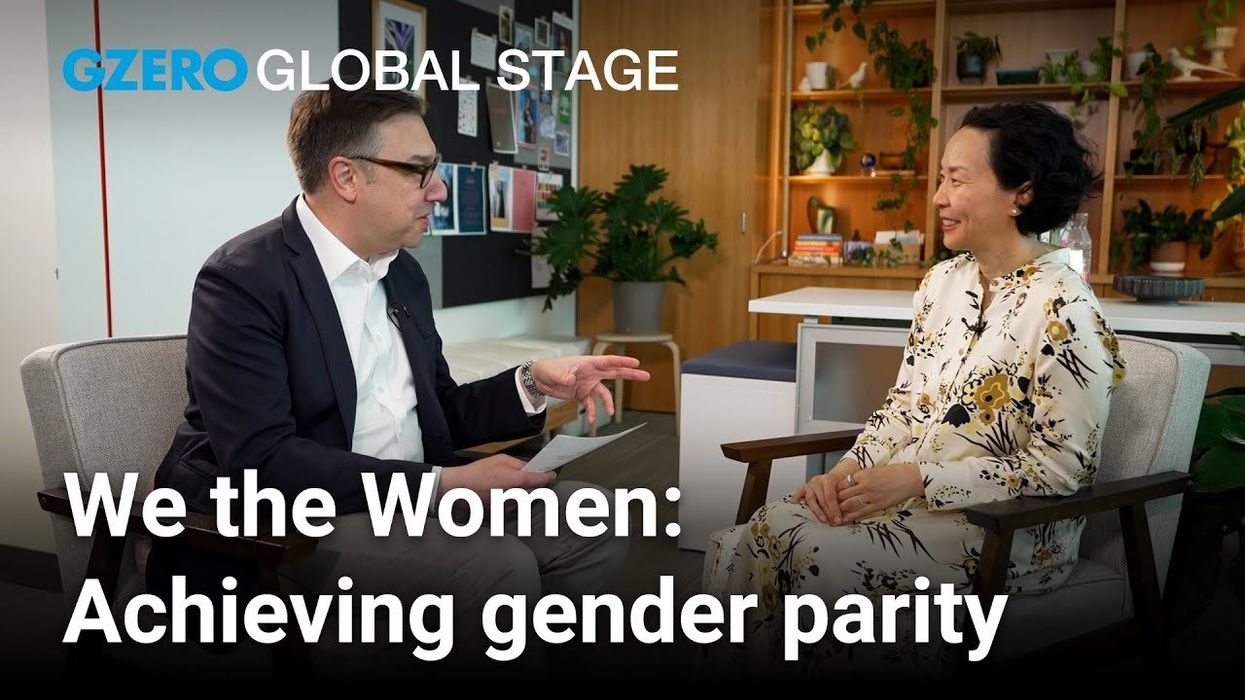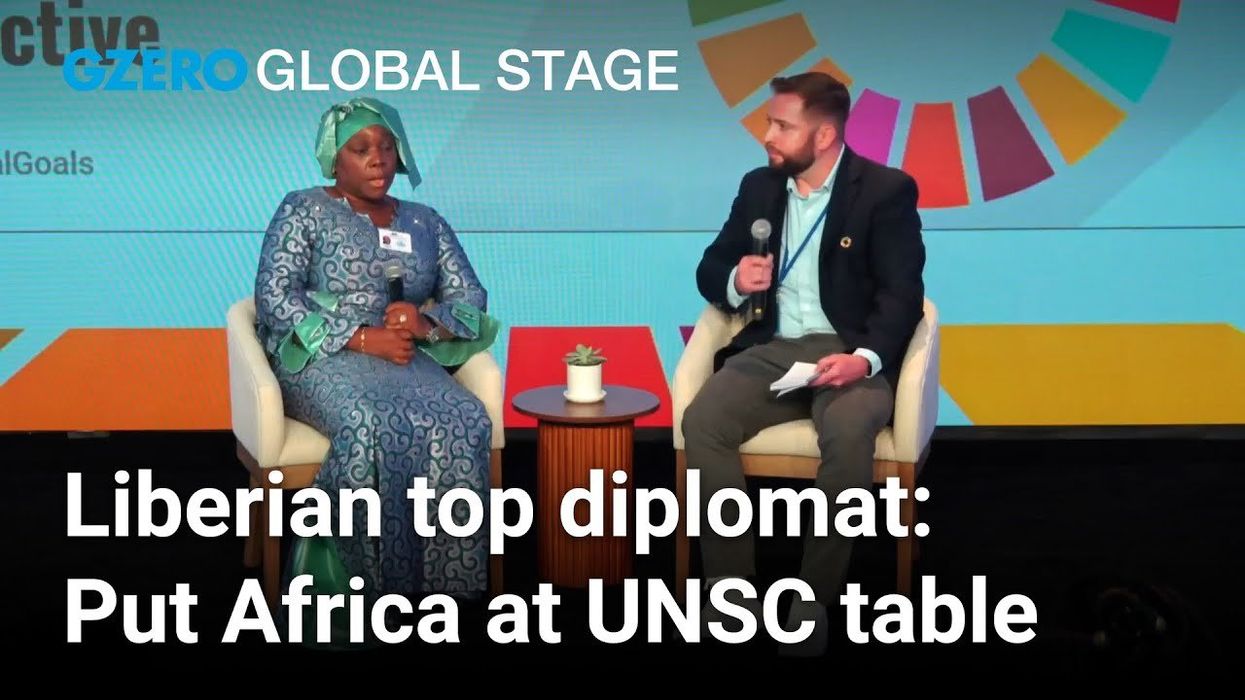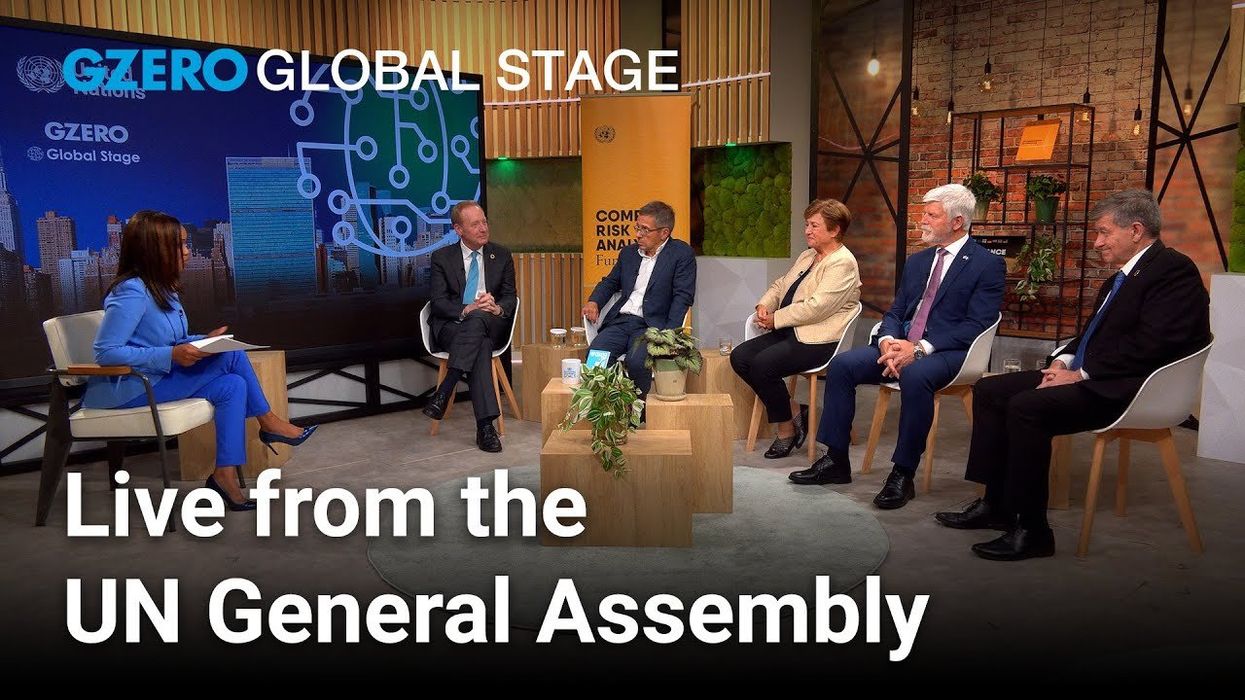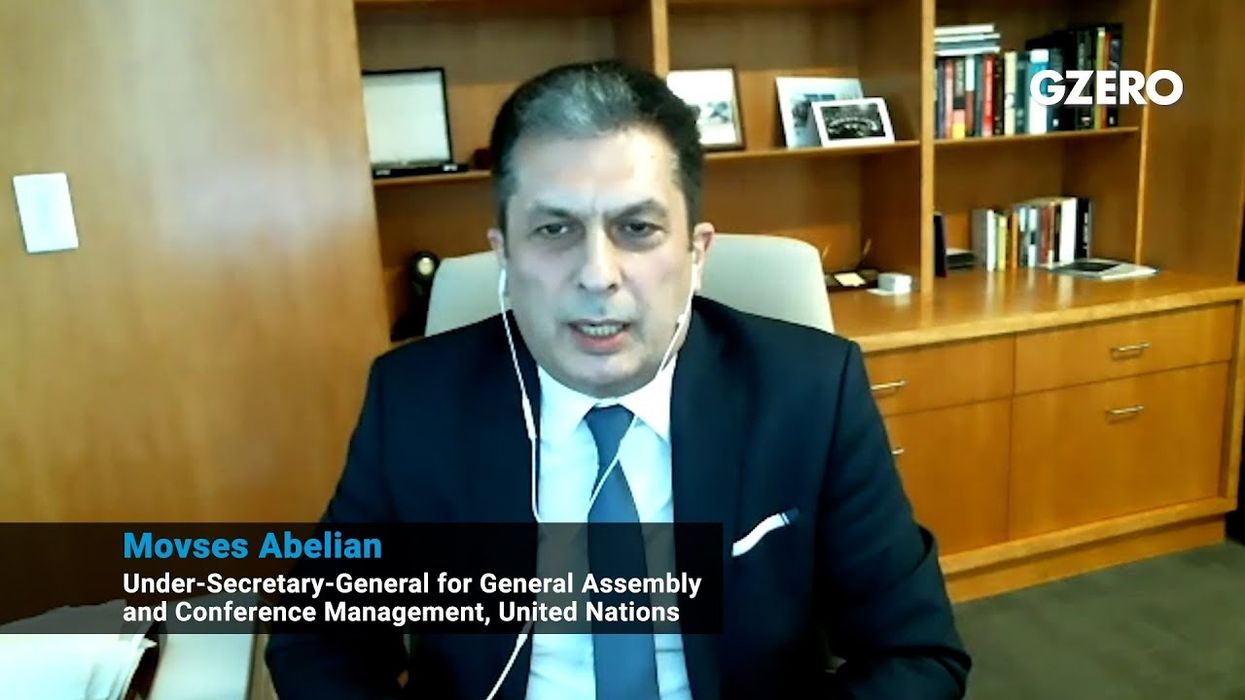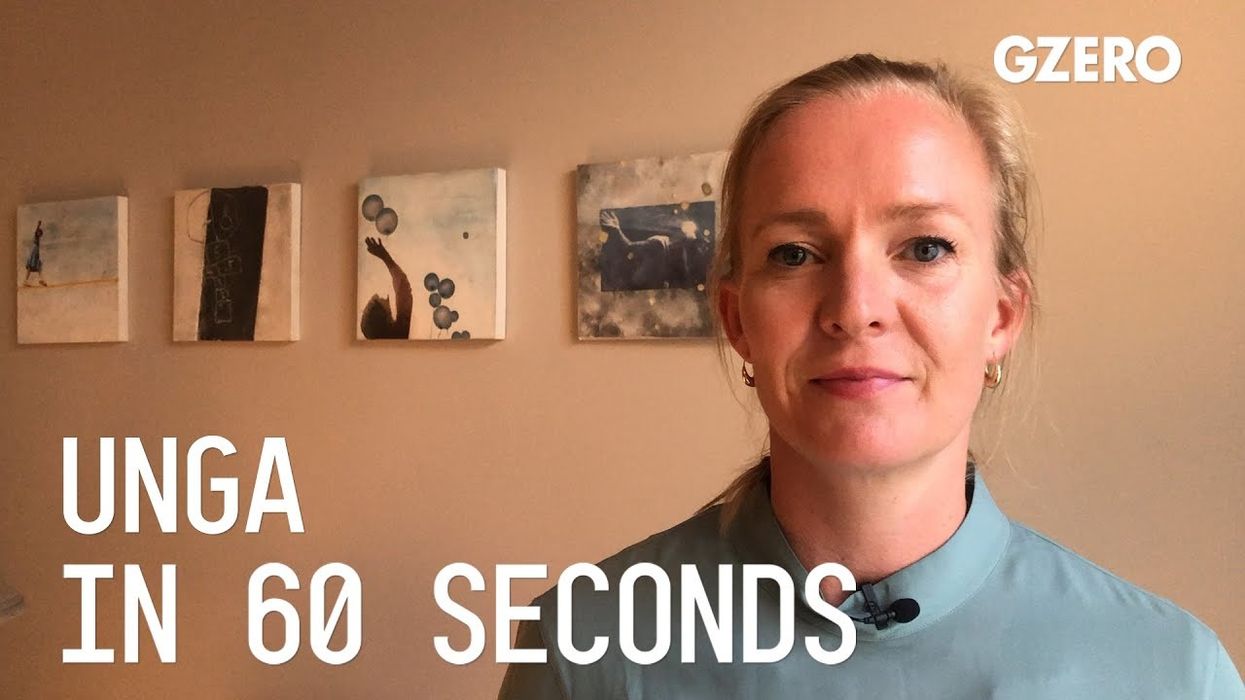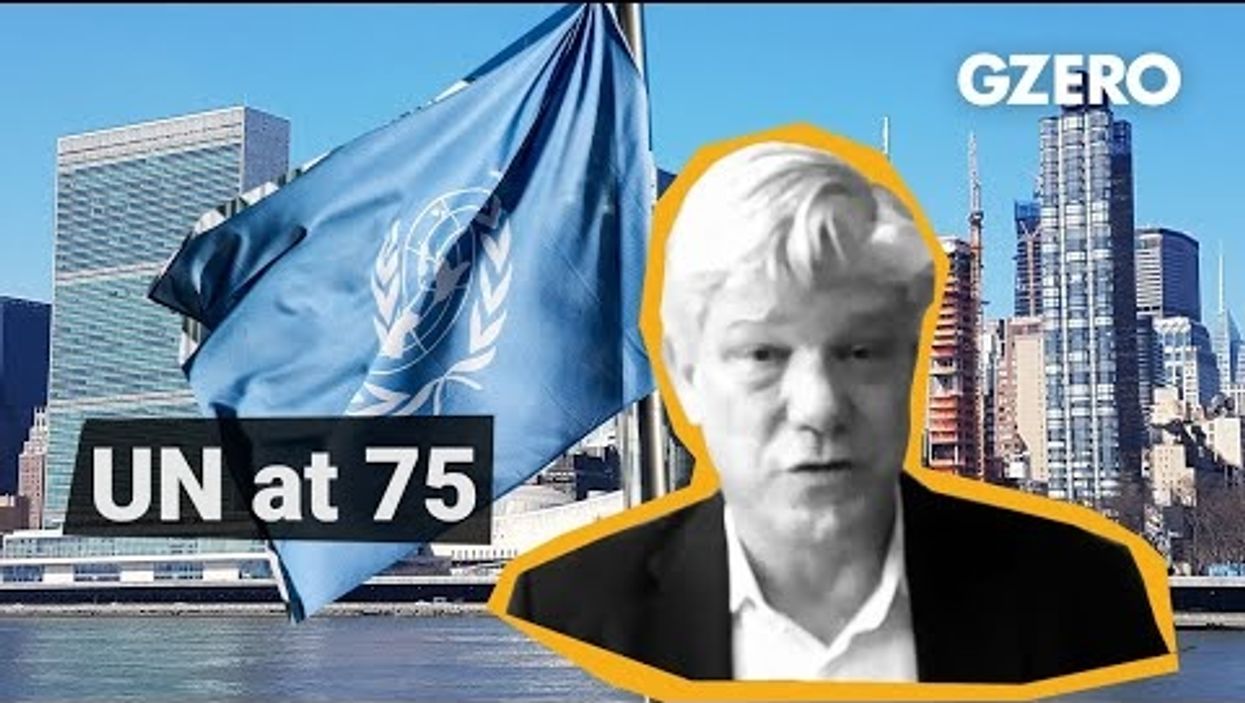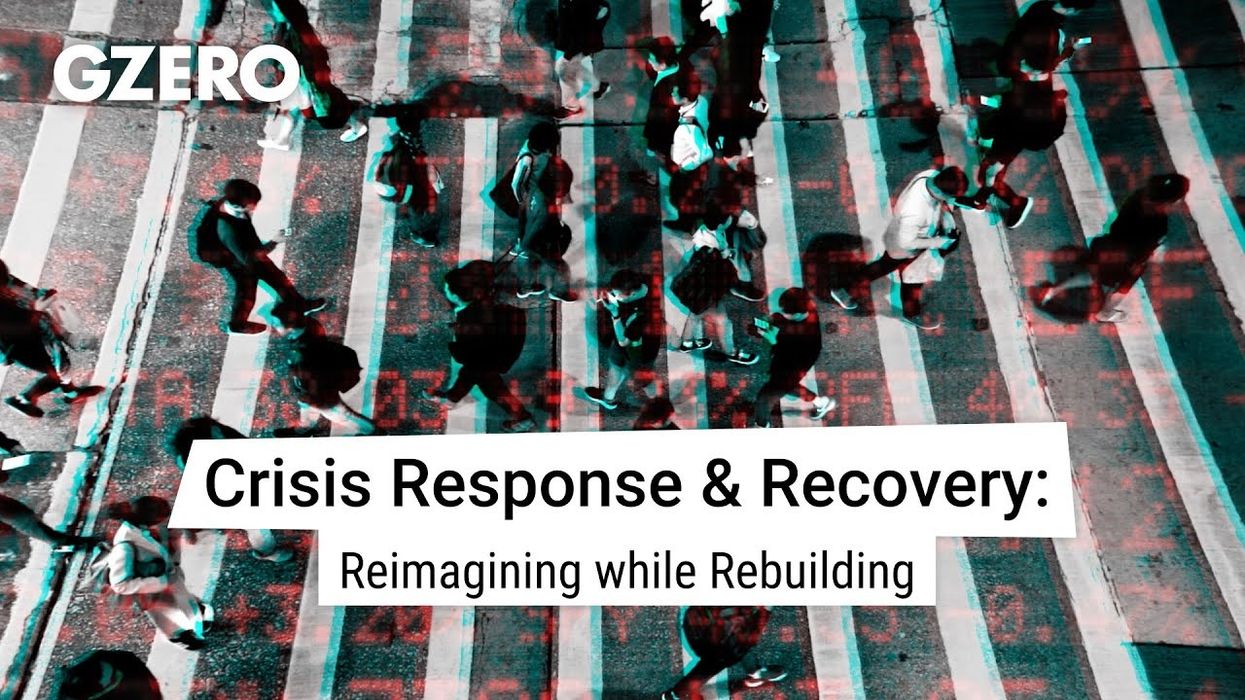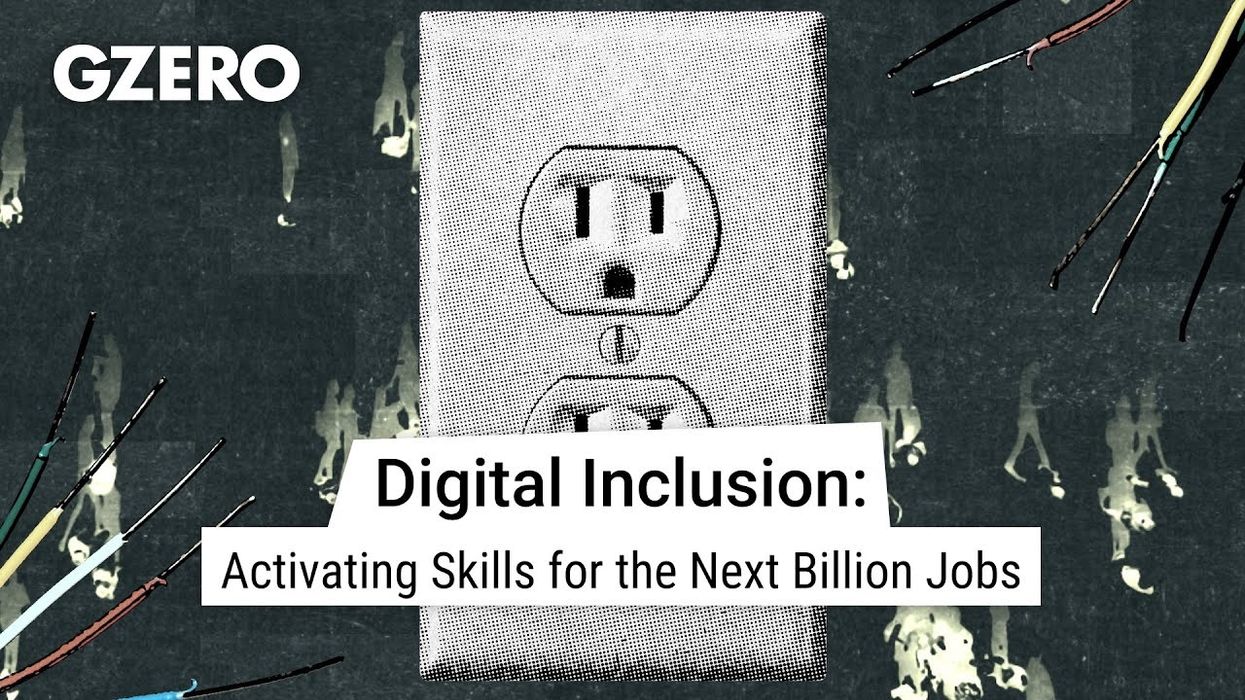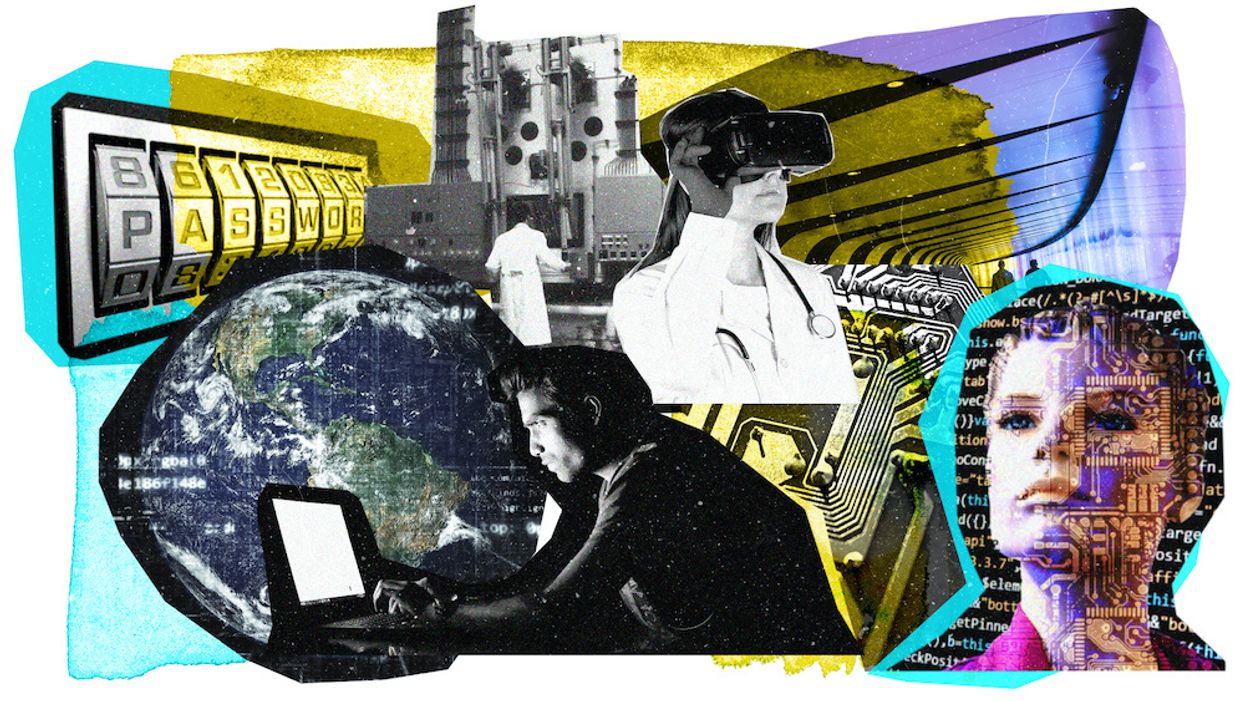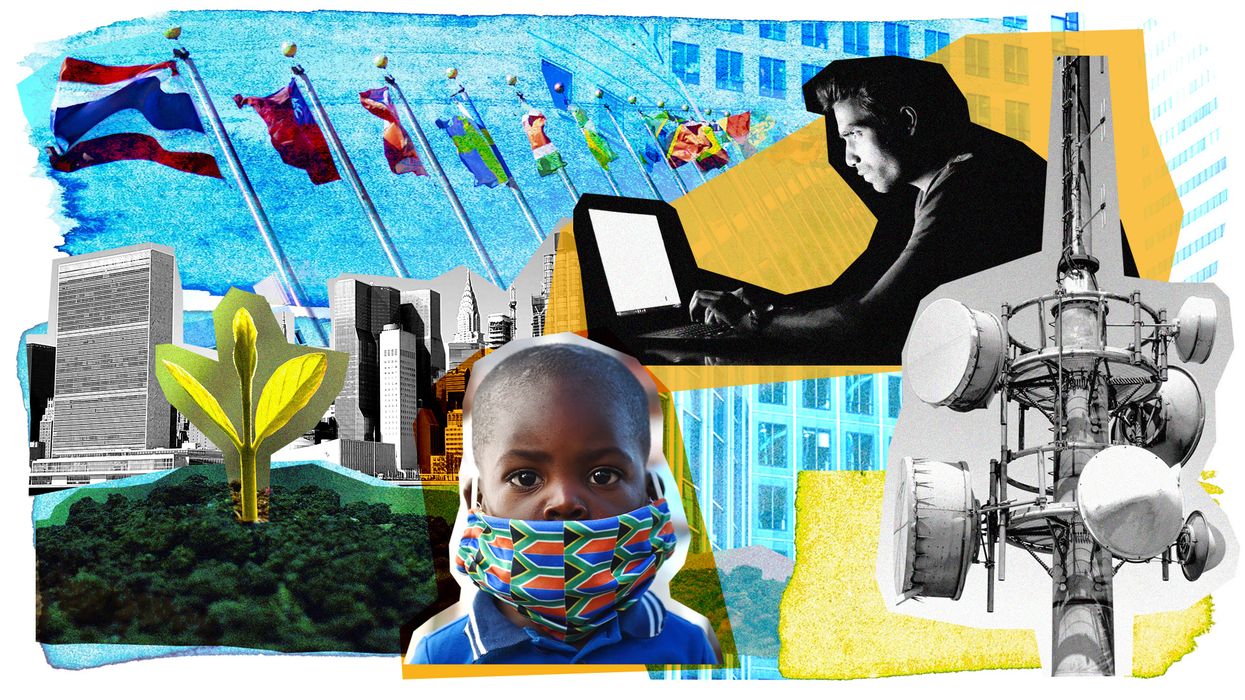VIDEOSGZERO World with Ian BremmerQuick TakePUPPET REGIMEIan ExplainsGZERO ReportsAsk IanGlobal Stage
Site Navigation
Search
Human content,
AI powered search.
Latest Stories
Sign up for GZERO Daily.
Get our latest updates and insights delivered to your inbox.
Global Stage: Live from Davos
WATCH
UN General Assembly
The UN General Assembly takes place at United Nations headquarters in New York City every September. World leaders make speeches and diplomats convene to discuss global priorities.
Presented by
Gerald Butts, Vice Chairman & Senior Advisor of Eurasia Group, discusses reasons the rapid global response to climate change warrants optimism on UNGA In 60 Seconds.
There's a lot of doom and gloom out there about climate change. Can you give me a reason to be optimistic?
I'm going to say something you don't hear set very often when it comes to climate change. You should be an optimist. You should be a skeptical optimist, but an optimist nonetheless. Let me explain what I mean. We are scaling up climate solutions faster than even the most ardent among us thought possible a decade ago. Consider this. In 2010, about half of US electricity was generated from coal. This year less than 20% will be, and it's trending towards zero at increasing velocity.
Yesterday, just yesterday, Xi Jinping announced at UNGA that China's emissions will peak this decade, and he set an economy-wide net zero target for the middle of the century. And this afternoon, yes, just this afternoon before recording this segment, California Governor Gavin Newsome said the state will outlaw the internal combustion engine by 2035. All of this is happening against the backdrop of the European Green Deal, making a truly historic investment in clean growth, and a presidential nominee running on a climate plan that would have been unthinkable one election cycle ago. And that's just the politics. On the market side, ESG investing is more than holding its own against traditional vehicles, and the cost of renewable energy is truly competitive with thermal fossil, almost everywhere in the world, about a decade sooner than conventional wisdom, expected it to be. In short, things are changing, and fast.
But more than any of these trends, I'm optimistic because the demographics are finally on the side of climate action. Countries, global institutions, and firms are increasingly being led by a generation of people who will live through the harsh reality of the climate change era. They've seen the future, and they don't like it. None of this is to say the change is going to be easy or that it's going to happen automatically. These big changes that I've been talking about... They need to get bigger, and they need to happen faster, but there's too much doom-saying out there about climate change. There is hope, you should be skeptical, and you should always, always read the fine print, but there's lots of reasons to be hopeful. I'm Gerald Butts, and this has been UNGA in 60 Seconds.
Keep reading...Show less
More from UN General Assembly
The unseen wounds of war
October 10, 2025
Why is public trust low, and how to fix it
October 02, 2025
Democracy 2.0: Delivering on people’s needs
October 01, 2025
Citizens’ assemblies helped Ireland move from conflict to consensus
October 01, 2025
Protect the watchdogs: Journalism, justice, & accountability
September 30, 2025
Participation = trust: Malawi’s citizens’ juries deliver democracy
September 30, 2025
How can data and AI transform humanitarian action?
September 26, 2025
The UN at 80: Reform, multilateralism & the Global South’s voice
September 26, 2025
India’s race to leverage AI by 2047
September 25, 2025
Global trade is experiencing a tectonic shift, says UNCTAD's Rebeca Grynspan
September 24, 2025
The UN at 80: Can multilateralism survive AI, war, and fragmentation?
September 24, 2025
The AI divide: Who gets left behind?
September 23, 2025
The UN at 80: Reform, cuts & the future of multilateralism
September 22, 2025
Ian Bremmer and Amina Mohammed on the promise and peril of AI
October 06, 2024
Why true AI progress is dependent on collective engagement
September 30, 2024
For AI access for all, investment is the key, says Microsoft's Brad Smith
September 28, 2024
How the UN is combating disinformation in the age of AI
September 28, 2024
The future women want
September 28, 2024
Can we use AI to secure the world's digital future?
September 25, 2024
UN official on historic virtual UNGA: “We are in business. We are there”
September 25, 2020
Can the UN bring peace to cyberspace?
September 23, 2020
UN75: Born out of global crisis, the UN confronts another
September 21, 2020
Digital peace: Trust and security in cyberspace
September 13, 2020
UNGA at 75: A unique UNGA for a post-pandemic UN
September 13, 2020
GZERO Series
GZERO Daily: our free newsletter about global politics
Keep up with what’s going on around the world - and why it matters.
